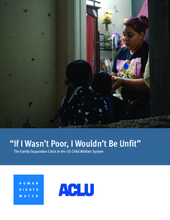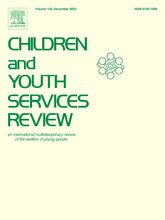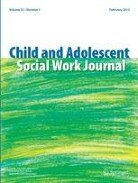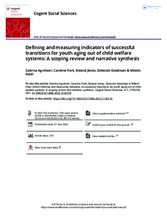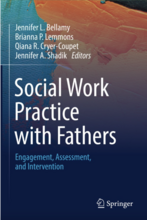Displaying 151 - 160 of 2509
This Human Rights Watch report examines removals of children and termination of parental rights by state child welfare systems in the U.S., focusing primarily on four states: California, New York, Oklahoma, and West Virginia.
The US child welfare system punishes people for living in poverty and disproportionately impacts Black and Indigenous families, according to a new report produced by Human Rights Watch and the American Civil Liberties Union. The failures of the system can haunt families for decades by limiting their employment opportunities and exacerbating a cycle of poverty that can trap successive generations in the child welfare net.
Native Americans are speaking out decades later about the abuses and indignities they endured at a school designed to “kill the Indian” in them.
This case study outlines the financial impact of the transition of Bridges Safehouse, an organization that provided support to a total of 834 children, youth and adults, through their residential and community-based intervention programs combined.
Using national child welfare data, the authors examined a subset of foster children (7%) who entered care due to parental incarceration in the U.S.
In this cross-sectional comparative study, the authors assess the outcomes of emancipated youth in the U.S. after the initiation of an extended after care program and compare the results with the outcomes drawn from a prior study conducted twenty years earlier. Overall, young adults in the 2021 study fared significantly better than their 2001 counterparts.
PASCUA YAQUI INDIAN RESERVATION, Ariz. — Victor Cortez was just 5 months old when he was brought here from California by a tribal social worker, who placed the baby in the care of a relative after his mother was jailed for drug trafficking. Today, 16 and soft-spoken, Victor is a rising star among the Pascua Yaquis’ traditional dancers and is still living with that guardian, the only mother he’s ever known.
This study represents a scoping review and narrative synthesis that sought to identify indicators used to measure the success of aging out youth in North America and their corresponding methods of assessment.
This chapter in the book "Engaging Fathers in Child Welfare and Foster Care Settings: Promoting Paternal Contributions to the Safety, Permanency, and Well-being of Children and Families" explores research on father engagement in child welfare services in the U.S., including studies on engagement activities, associations with child welfare outcomes, and barriers to engagement with the aim of assisting social workers and child welfare caseworkers in more fully engaging fathers.
In America, popular narratives about adoption tend to focus on happy endings. Poor mothers who were predestined to give their children away for a “better life”; unwanted kids turned into chosen ones; made-for-television reunions years later. Since childhood, these story lines about the industry of infant adoptions had gradually seeped into my subconscious from movies, books, and the news.

